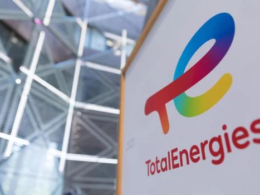The U.S. Green Building Council (USGBC) has called on Congress to oppose a new budget reconciliation package that would repeal several longstanding federal tax incentives and energy programmes critical to energy affordability, climate resilience, and job creation.
The draft legislation, currently under review by the House of Representatives, proposes to phase out or terminate a suite of clean energy and building sector incentives—including tax credits for residential energy efficiency, clean construction, and alternative vehicle infrastructure—by the end of 2025.
“A vote to repeal these tax incentives is a vote to raise energy costs for millions of American households and businesses while discouraging billions of dollars of investment in construction and real estate,” said Elizabeth Beardsley, senior policy counsel at the USGBC.
Beardsley warned that the legislation would create economic uncertainty for developers and homebuilders, threatening ongoing and planned projects. “If these drastic changes are enacted, projects will be cancelled. Investment will slow. And the people who will lose out the most are workers in the building trades,” she said.
Two key tax credits—Section 25C for homeowner energy efficiency upgrades, and Section 45L for constructing energy-efficient homes—would be eliminated. In 2023 alone, over 2.3 million American households claimed the 25C credit, saving an average of $900, while nearly 350,000 homes were built to ENERGY STAR standards under the 45L programme.
Beardsley also criticised the proposal to retroactively terminate the 45L credit for homes under construction, arguing it unfairly penalises builders who had planned around the incentive.
The bill would also accelerate the phase-down of the Investment Tax Credit and eliminate its transferability—a feature widely used by real estate developers to install on-site renewable energy. Additionally, it would repeal the credit for alternative fuel infrastructure, popular in office and multi-family housing developments.
Beyond tax provisions, the House Energy and Commerce Committee’s proposal would revoke funds from key Department of Energy programmes, including the Office of Energy Efficiency and Renewable Energy and the Federal Energy Management Program, both of which support research and public-private initiatives that reduce national energy costs.
The Environmental Protection Agency (EPA) would also face cuts, with the rescission of funding for projects promoting low-carbon construction materials, school air quality improvements, and state-based energy efficiency training.
The House Transportation and Infrastructure Committee has separately proposed rescinding over $3 billion in unobligated funds from the General Services Administration (GSA), threatening numerous high-performance building and technology demonstration projects across the country, including land ports, courthouses, and other critical infrastructure.
“These programmes are ultimately about positioning the U.S. to lead in the global economic opportunities of the future, while also helping businesses and households reduce energy costs,” Beardsley said.















